We may not have the course you’re looking for. If you enquire or give us a call on +44 1344 203 999 and speak to our training experts, we may still be able to help with your training requirements.
Training Outcomes Within Your Budget!
We ensure quality, budget-alignment, and timely delivery by our expert instructors.

As culture shifts, technological advancements, and psychological understandings evolve, so do the needs and preferences of clients. Being aware of Life Coaching Trends ensures Coaches can meet these changing demands, offering strategies and solutions that resonate with contemporary challenges. Furthermore, staying updated allows Coaches to harness novel tools, methodologies, and platforms that can amplify their impact.
A great Coach not only guides you through challenges but also unlocks your potential, catalysing personal and professional growth. The transformative impact of a dedicated coach is, without doubt, a life-changing alliance. In this blog, discover the top 31 Life Coaching Trends shaping the industry. Equip yourself with insights into evolving methodologies, and niche specialisations.
Table of Contents
1) Technological innovations in Coaching
2) Foundations and frameworks
3) Coaching methodologies and techniques
4) Professional development and growth
5) Emerging themes and specialisations
6) The Future outlook of Life Coaching
7) Conclusion
Technological Innovations in Coaching
Innovations not only expand the reach of Coaching but also enhance its effectiveness, creating immersive, personalised experiences for clients. From Virtual sessions to AI-driven tools, technology is reshaping the Coaching landscape, making it more accessible, and impactful.
Digital Platforms and Virtual Sessions
The digital revolution has permeated nearly every industry, and Life Coach is no exception. The adoption of digital platforms and the rise of Virtual sessions have democratised access to Coaching, allowing individuals to connect with experts regardless of geographic boundaries.
This shift has not only increased accessibility but also provided flexibility in scheduling, making it easier for clients to fit sessions into their busy lives. Additionally, digital tools such as shared documents, apps, and interactive platforms enhance the Coaching experience, allowing for real-time feedback and progress tracking.
While face-to-face interactions remain valuable, the surge in Virtual Coaching underscores a broader trend towards convenience, adaptability, and the global reach of digital transformation in the Life Coaching industry. Digital platforms and virtual sessions offer you a road map to success as shown in the image.
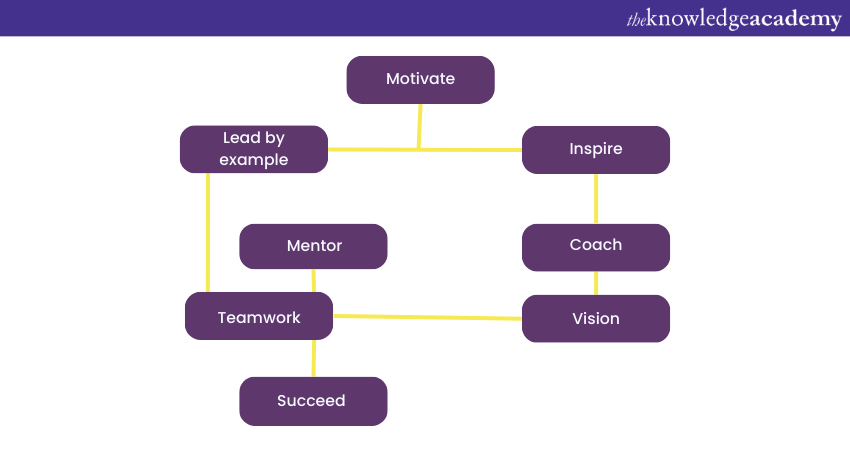
Use of Technology in Coaching
Technology's integration into Life Coach is improving the way they interact, evaluate, and provide solutions to clients. Beyond the evident shift to Virtual Sessions, a plethora of tools—from apps that monitor daily habits to wearables tracking physiological responses—are now at a coach's disposal.
These tools offer objective data, aiding in more precise, evidence-based guidance. For instance, wearables can provide insights into a client's sleep patterns or stress levels, enabling tailored advice for improvement. AI-powered platforms can Analyse a client's responses over time, predicting potential challenges or areas of concern.
This fusion of technology and Coaching ensures a more personalised, proactive, and data-driven approach, marrying the age-old wisdom of mentoring with the precision and efficiency of modern-day tech.
The Role of AI and Chatbots
Artificial Intelligence (AI) and Chatbots are revolutionising many industries, and Life Coaching is no exception. These technological advancements offer scalable, immediate, and personalised support to individuals seeking guidance. Chatbots, powered by sophisticated AI algorithms, can now provide instant feedback, track progress, and even deliver tailored interventions based on the user's input.
They bridge the gap between scheduled sessions, ensuring continuity and support at one's fingertips. Additionally, AI can analyse patterns, helping Coaches and clients identify Life Coaching Trends in behaviour or mood over time. While AI doesn't replace the human touch essential for deep emotional connection, its integration augments traditional Coaching, offering enhanced accessibility, data-driven insights, and consistent engagement in the self-improvement journey.
Ready to embrace a healthier you? Explore our Healthy Lifestyles Training and unlock the secrets to sustainable living and well-being.
Harnessing Social Media Platforms
The omnipresence of Social Media in today's digital age offers life Coaches a robust tool to extend their reach, influence, and impact. Platforms like Instagram, LinkedIn, and Facebook have become arenas where Coaches showcase their expertise, share testimonials, and offer snippets of advice to a global audience.
These platforms not only aid in client acquisition but also foster a community of followers who derive value from bite-sized wisdom, webinars, and interactive sessions. By adeptly leveraging the algorithms, multimedia features, and targeted advertising, Coaches can tailor their content, ensuring resonance with their desired demographics.
Gamification of Coaching Techniques
The combination of game elements into non-game contexts, known as gamification, is revolutionising the world of Life Coach. By transforming traditional Coaching methodologies into engaging, interactive experiences, gamification enhances motivation, retention, and application of learned principles.
Whether it's through point systems, challenges, badges, or leaderboards, gamified Coaching taps into the innate human love for competition, rewards, and achievement. These techniques not only make the learning process more enjoyable but also provide tangible metrics for progress and accomplishment.
Furthermore, gamified platforms often promote community engagement, where participants can share experiences, celebrate milestones, and offer mutual support. By marrying play with purpose, gamification redefines the Coaching experience, making Personality Development both fun and fulfilling.
Foundations and Frameworks
At the heart of effective Life Coaching lie robust foundations and frameworks, guiding principles that ensure integrity, clarity, and purpose. These pillars shape the Coaching journey, providing both structure and direction for transformative outcomes.
The Rise of Niche Coaching
In the early days of a Life Coach, most professionals operated under the broad umbrella of general life improvement. However, as the industry matured, so did the realisation that clients often sought guidance in specific areas of their lives. Today's "niche Coaching" targets these specialised requirements, offering tailor-made solutions for distinct challenges. From parenting, health and wellness to career transitions and even digital detox Coaching, these niches address needs, making Coaching sessions more impactful. This trend not only empowers the client with more relevant advice but also allows the Life Coach to delve deeper, develop expertise, and make a more significant difference in a specific domain. The rise of niche Coaching signifies the industry's move towards a more personalised and solution-driven approach
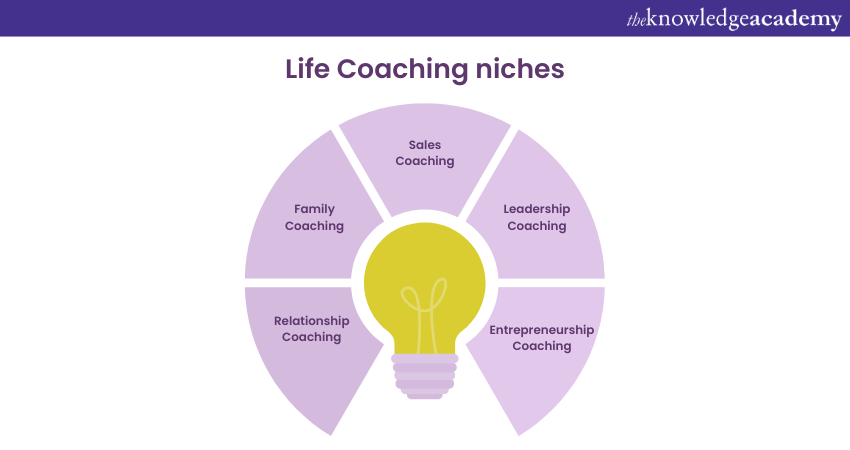
Setting Boundaries in Coaching
The intimate nature of Life Coaching, which delves into personal aspirations, fears, and emotions, necessitates the establishment of clear boundaries. Both Coaches and clients benefit from an environment where roles, expectations, and limits are distinctly defined. Setting boundaries ensures that the Coaching relationship remains professional, respectful, and focused on the client's growth.
It protects against potential over-dependencies, blurred personal-professional lines, or any unintended transgressions. For the coach, boundaries preserve their emotional well-being, preventing burnout and ensuring they can serve their clients effectively. For the client, clear limits provide a secure framework within which they can openly explore their challenges and goals.
The Need for Authenticity
As the digital age inundates us with curated portrayals and filtered realities, the craving for authenticity in personal interactions intensifies. Within Life Coaching, authenticity emerges as a paramount virtue. Clients are not seeking perfection but genuine understanding, empathy, and transparency.
Coaches who embrace authenticity foster deeper connections, creating safe spaces where clients feel seen, heard, and validated in their truest forms. Authentic Coaches share their vulnerabilities, learning journeys, and real-life experiences, transcending mere professional facades. This reality encourages clients to shed their masks, delve into their genuine aspirations and fears, and embark on transformative journeys.
Expanding Ethical Standards
As the Life Coaching profession burgeons, there's a pressing need for stringent and evolving ethical standards to ensure both coach and client operate within a framework of integrity and respect. These standards encompass confidentiality, informed consent, transparency, and non-exploitation.
Moreover, with the digital age introducing novel modes of communication and data storage, ethical guidelines now also address issues like online privacy and digital security. It's crucial for Coaches to continually educate themselves about these standards, ensuring they remain current and compliant. This dedication to ethics not only protects clients but also elevates the profession's credibility.
The Shift to Holistic Approaches
Life Coaching, historically centered on specific goals or challenges, is witnessing a paradigm shift towards holistic approaches. Rather than compartmentalising aspects of an individual's life, Coaches are now viewing clients through a broader, integrated lens, encompassing physical, mental, emotional, and spiritual dimensions.
This holistic perspective acknowledges the interconnectedness of various life facets, understanding that a challenge in one area can reverberate across others. By addressing the whole person, Coaches can better identify underlying issues, create balanced solutions, and foster comprehensive well-being. This shift reflects a deeper understanding that true fulfilment and happiness arise from harmony across all areas of one's life, promoting lasting, meaningful change.
Calm your mind and enhance your focus! Join our Meditation Course to develop practices that promote relaxation and mental clarity.
Coaching Methodologies and Techniques
Ranging from scientific insights to artistic expressions, these approaches cater to varied needs, ensuring each client's journey is tailored, impactful, and resonant. As the field evolves, so do its strategies, continually refining the art of personal transformation.
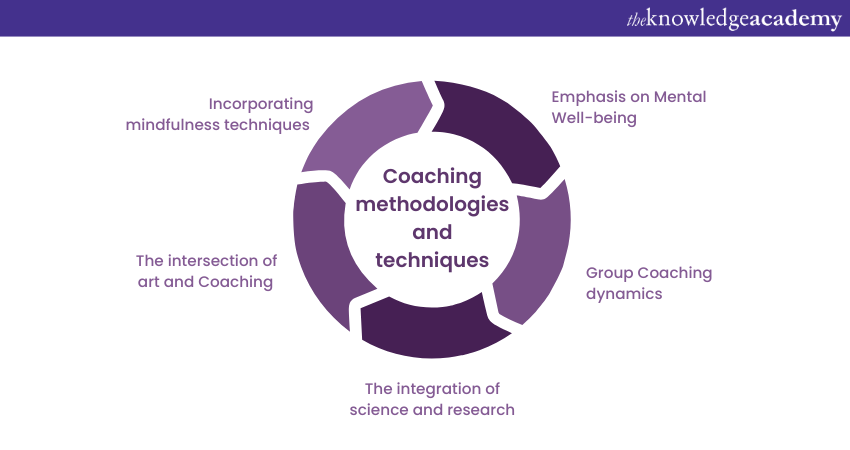
Emphasis on Mental Well-being
The narrative around mental health has witnessed a sea change in the last decade. No longer relegated to the shadows, mental well-being is now at the forefront of personal development discussions. Life Coaches are recognising this shift, intertwining mental health strategies with their Coaching practices.
While they are not substitutes for licensed therapists, many life Coaches are obtaining training in areas like cognitive behavioural techniques, stress management, and emotional resilience. They're providing clients with tools to better understand their emotions, recognise negative patterns, and foster a healthier mindset.
This enhanced focus is evidence of the Coaching world's acknowledgment of the intricate link between success, happiness, and mental well-being.
Group Coaching Dynamics
Group Coaching has emerged as a powerful alternative to traditional one-on-one sessions, capitalising on the collective energy, shared experiences, and diverse perspectives of a group. Participants not only gain insights from a professional coach but also benefit from peer feedback, creating a vibrant ecosystem of mutual learning.
The dynamics of a group setting foster accountability, as members often motivate each other towards shared goals. Additionally, hearing diverse experiences can provide alternative solutions to personal challenges, catalysing growth and understanding.
For many, the sense of community and shared purpose in group Coaching alleviates feelings of isolation, offering both support and inspiration. As more individuals seek connection and relatability in their personal growth journeys, the appeal of group Coaching continues to soar.
Transform lives as a certified Life Coach with our immersive Life Coach Training – Sign up now and empower positive change!
The Integration of Science and Research
Life Coaching, once rooted predominantly in anecdotal practices and intuitive methods, is increasingly intertwining with the rigors of science and research. This symbiosis elevates the profession, lending it credibility and enhancing its effectiveness. Coaches now leverage insights from neuroscience to understand brain behaviour, employ psychological theories to decipher human motivations, and utilise evidence-based strategies to drive change.
This integration ensures that the guidance provided isn't just well-intentioned but is also backed by empirical evidence. Clients benefit from interventions that have been tested, validated, and refined over time. As Coaching marries intuition with research, it promises a holistic approach that respects both the art and science of human transformation.
The Intersection of Art and Coaching
Life Coaching, traditionally rooted in dialogue and introspection, is witnessing an enriching confluence with the world of art. By integrating artistic processes—such as painting, music, dance, or drama—Coaches offer clients innovative avenues to express, explore, and understand their inner landscapes.
Art, with its boundless capacity to evoke emotion and provoke thought, becomes a medium through which individuals can articulate feelings that may be difficult to convey verbally. For instance, drawing a personal journey might reveal hidden fears, or choreographing a dance might unearth suppressed desires.
This harmonisation of art and Coaching not only amplifies self-awareness but also fosters creativity, resilience, and a deeper connection to one's essence, melding the therapeutic with the transformative.
Incorporating Mindfulness Techniques
Mindfulness, an age-old practice rooted in being present and fully engaged in the moment, has found renewed significance in modern Life Coaching. Amidst the cacophony of digital distractions and the incessant pace of modern life, Mindfulness techniques offer a sanctuary of calm and clarity.
Life Coaches are increasingly integrating these techniques to help clients cultivate self-awareness, manage stress, and enhance focus. Techniques such as guided deep breathing exercises, and mindful journaling enable individuals to tap into their inner thoughts and emotions.
By grounding clients in the present, Coaches utilising mindfulness not only enhance emotional regulation but also empower individuals to respond rather than react to life's challenges, fostering balance and inner harmony.
Energize your life! Dive into our Active and Healthy Lifestyles Training and discover ways to incorporate fitness into your routine.
Professional Development and Growth
Life Coaching is not a static profession; it thrives on the continuous evolution of its practitioners. To remain relevant and effective, Coaches prioritise their own professional development and growth.
The Importance of Certification
Certification offers a benchmark of quality, ensuring that a Life Coach has undergone rigorous training and adheres to established standards of practice. For clients, selecting a certified coach provides reassurance of their expertise, commitment, and ethical conduct.
Moreover, certification often demands continuous learning, ensuring Coaches remain updated with the latest methodologies and tools. In essence, certification elevates the credibility of the profession, fostering trust and ensuring that clients receive quality guidance and support.
Continual Learning and Skill Enhancement
The dynamic realm of Life Coaching demands that practitioners remain perennial students, continuously evolving in response to new insights, methodologies, and societal shifts. With a landscape that's ever-changing, anchored by advances in neuroscience, psychology, and technology, Coaches who prioritise continual learning ensure they remain at the forefront of their craft.
This dedication to skill enhancement not only elevates their professional prowess but also amplifies the value they offer to clients. Workshops, certifications, seminars, and peer interactions become vital avenues for this growth. By committing to lifelong learning, Coaches reaffirm their dedication to excellence, ensuring that their guidance is both contemporary and effective, fostering trust and respect among clients.
The Growing Importance of Networking
Life Coaching, once a profession dominated by solo practitioners, is seen as a shift towards the power of community and collaboration. Networking has emerged as an invaluable asset, both for Coaches and their clients. For Coaches, connecting with peers offers opportunities for shared learning, referrals, and professional development.
Engaging in Coaching communities or associations allows for the exchange of best practices, insights, and emerging Life Coaching Trends. For clients, Coaches often tap into their professional networks to recommend resources, experts, or opportunities that align with the client's goals. The interconnected web of relationships amplifies the value and impact of Coaching, reinforcing the adage that in unity and collaboration, there lies unparalleled strength and potential.
Corporate Life Coaching
Moving beyond traditional training sessions, corporate Life Coaching delves into individualised development, targetin leadership skills, interpersonal dynamics, and personal growth within the workplace context. Coaches work with executives to hone their decision-making, manage team dynamics, and navigate career transitions. For employees, such Coaching aids in striking a work-life balance, managing stress, and aligning personal goals with company objectives. By investing in corporate Life Coaching, organisations foster a culture of continuous learning, improved productivity, and heightened job satisfaction, ultimately contributing to both individual and collective success.
Spiritual Life Coaching
Nowadays, many are seeking deeper meaning, purpose, and connection in their lives. Spiritual Life Coaching addresses this intrinsic human longing. Unlike traditional Coaching, which often revolves around tangible goals, spiritual Coaching dives deeper, exploring life's existential questions and one's place within the universe. Different aspects of life require Spiritual Life Coaching at varying stages of life. The following image shows various reasons behind the lack of it.
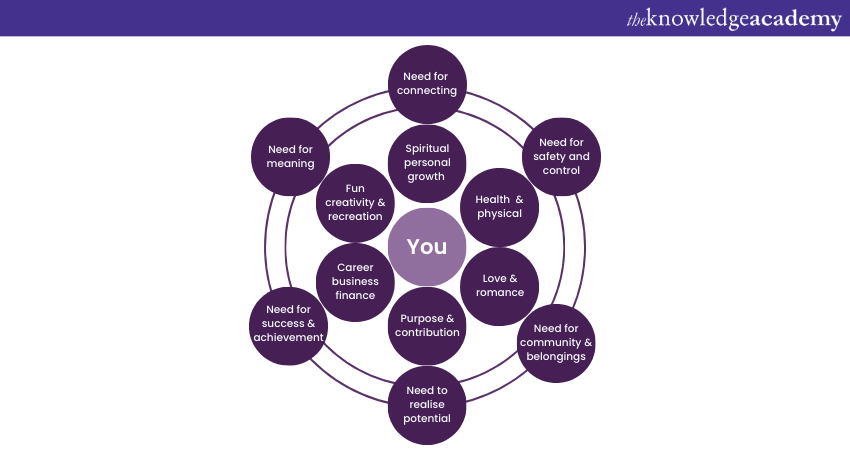
Coaches in this niche integrate philosophies, faith-based teachings, and meditation practices to guide clients on a journey of inner discovery. They help individuals align with their core beliefs, unravel their spiritual gifts, and navigate life's challenges with grace and wisdom. As people increasingly yearn for holistic well-being, spiritual Life Coaching offers a pathway to deeper self-awareness, fulfilment, and inner peace.
Emerging Themes and Specialisations
Driven by societal shifts, technological advancements, and a deeper understanding of human needs, emerging niches cater to specific demographics or challenges. By staying attuned to these fresh perspectives, Life Coaching remains capable of addressing the multifaceted dimensions of human experience.
Emphasis on Accountability
While self-awareness and goal setting are vital, they bear fruit only when paired with consistent action. Life Coaches are increasingly emphasising the role of accountability, ensuring that clients not only set intentions but also follow through. This entails regular check-ins, progress tracking, and sometimes, challenging clients when they veer off course.
The coach acts as both a motivator and a mirror, reflecting the client's commitments and their subsequent actions. This emphasis on accountability transforms mere aspirations into tangible results, ensuring that individuals don't just dream of a better life but actively work towards crafting it. Accountability, in this context, becomes the bridge between intention and realisation.
Multicultural and Inclusive Coaching
Multicultural and inclusive Coaching acknowledges and celebrates diverse tapestry of cultures, backgrounds, and experiences that individuals bring to the table. Instead of a one-size-fits-all approach, Coaches are trained to understand, and respect varied cultural nuances, beliefs, and values. They approach clients with an open mind, striving to see the world through their eyes.
Inclusivity ensures that advice and strategies resonate deeply, are culturally sensitive, and foster genuine growth. By embracing diversity, multicultural Coaching not only promotes personal development but also champions a broader message of unity, respect, and mutual understanding in an increasingly globalised world.
The Boom in Personal Branding
Personal branding has emerged as a powerful phenomenon, driven by the rise of social media, influencer culture, and the gig economy. Individuals are increasingly recognising the importance of crafting a unique, authentic narrative about themselves, positioning their skills, values, and experiences in a manner that stands out in the Virtual crowd.
Life Coaches are adapting to this trend, offering advice on how to build and manage a personal brand that aligns with one's aspirations and values. From curating a strong online presence to mastering the art of storytelling, the emphasis on personal branding reflects the intertwining of individual identity with the broader digital ecosystem. This boom underscores the shift from mere self-improvement to strategic self-presentation in the digital age.
Eco-Coaching and Sustainability
Environmental preservation and sustainable living Life Coaching has adapted to include eco-Coaching. This niche focuses on guiding individuals and organisations to make eco-friendly choices, aligning personal or business goals with sustainable practices.
Whether it's reducing carbon footprints, transitioning to a minimalistic lifestyle, or promoting green business initiatives, Eco-Coaches provide the knowledge and strategies needed. They emphasise the interconnectedness of human well-being with environmental health, advocating for choices that benefit both the individual and the planet.
Transform your health journey! Engage in our Nutrition and Fitness Training for a holistic approach to wellness and vitality.
Life Coaching for Youth
The challenges faced by today's youth—navigating the digital realm, societal pressures, identity issues, and academic stresses—are unprecedented in their complexity. Recognising this, the domain of Life Coaching has expanded to cater specifically to younger generations.
Life Coaching for youth provides tailored guidance, assisting them in building self-esteem, setting and achieving goals, and developing resilience against external pressures. With a unique blend of mentorship and structured guidance, Coaches help youths harness their strengths, understand their emotions, and make informed choices.
This early intervention not only aids in immediate problem-solving but also sets the foundation for a fulfilling, self-aware adulthood. The emergence of youth-centric Coaching underscores the importance of proactive mental and emotional support during formative years. It helps in the following aspects.
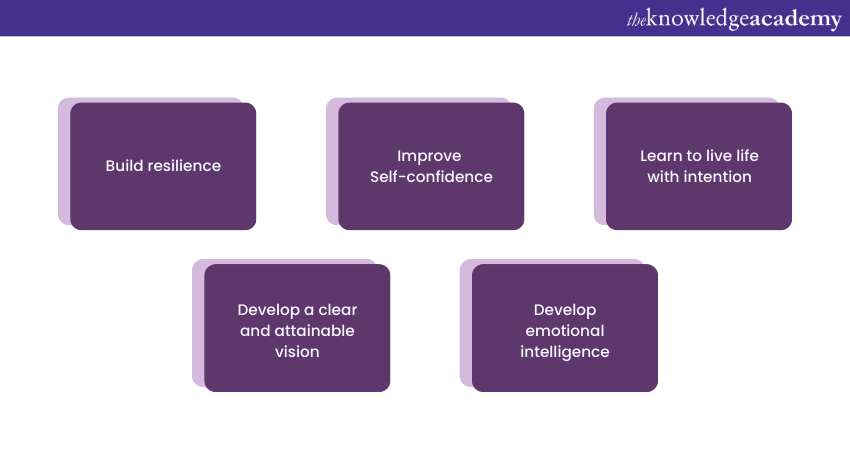
The Future Outlook of Life Coaching
The scenario of Life Coaching, like many professions, is not static; it's shaped by technological advancements, societal shifts, and the ever-evolving nature of human needs and challenges. As we gaze into the future, several notable Trends and potential shifts emerge:
1) Predicting the Next Big Trends: Coaches might soon find themselves helping clients navigate not just personal challenges but global ones—ranging from cultural integration to understanding and leveraging global economic shifts.
2) The Role of Research in Shaping Coaching: Scientific research, particularly from the realms of psychology and neuroscience, will continuously refine our understanding of human behaviour, motivation, and cognition. As new findings emerge, they'll be integrated into Coaching methodologies, ensuring that strategies are both current and effective.
3) Technological Advancements on the Horizon: Virtual reality (VR) and augmented reality (AR) are potential future tools for Life Coaching. Imagine a session where a coach can guide a client through a VR meditation experience or an AR-driven visualisation of their goals. Such immersive experiences could revolutionise the ways Coaches connect with and guide their clients.
4) The Evolving Client-coach Relationship: The future might see a shift from long-term Coaching relationships to more modular, issue-specific Coaching sessions. Additionally, with the rise of AI, some initial Coaching sessions could be AI-driven, reserving human interactions for deeper, more nuanced discussions.
5) Global Influences and Their Impact: As cultural dynamics shift globally; Coaches will need to be adept at understanding and navigating various cultural nuances. A global perspective will become increasingly crucial, ensuring that Coaching remains relevant and effective for clients from diverse backgrounds.
6) The Integration of Multidisciplinary Approaches: As boundaries between disciplines blur, Coaches might integrate insights from fields as diverse as quantum physics, spirituality, and artificial intelligence, creating a rich tapestry of tools and techniques to benefit their clients.
7) The Challenge of Scalability: The growing demand for Coaching will push the industry towards models that can cater to more individuals without diluting the quality of the Coaching experience. Online platforms, group sessions, and digital tools will play an important role in achieving this balance.
Conclusion
Imagine a coach who isn't aware of the rising focus on Virtual Reality (VR) Coaching. While they rely on traditional methods, another coach embraces VR to provide immersive stress management sessions. Clients are captivated, and word spreads. The first coach, unaware of this trend, struggles to engage and retain clients. Knowledge of Life Coaching Trends ensures Coaches continually enhance their offerings, making a lasting difference in clients' lives.
Find your inner peace! Experience our Yoga Training and learn techniques to enhance your flexibility, strength, and mindfulness.
Frequently Asked Questions

The future of life coaching is bright, with growing recognition of its value in personal and professional growth. Technological advancements, online platforms, and AI integration are transforming accessibility. As demand for mental wellness and self-improvement rises, the industry is set to thrive globally.

Life coaching is a booming field with projected growth fuelled by rising demand for personal development, career guidance, and mental wellness. By 2030, the global coaching industry is expected to surpass 20 billion, driven by corporate investments and individuals seeking transformative growth.

The Knowledge Academy takes global learning to new heights, offering over 30,000 online courses across 490+ locations in 220 countries. This expansive reach ensures accessibility and convenience for learners worldwide.
Alongside our diverse Online Course Catalogue, encompassing 19 major categories, we go the extra mile by providing a plethora of free educational Online Resources like News updates, Blogs, videos, webinars, and interview questions. Tailoring learning experiences further, professionals can maximise value with customisable Course Bundles of TKA.

The Knowledge Academy’s Knowledge Pass, a prepaid voucher, adds another layer of flexibility, allowing course bookings over a 12-month period. Join us on a journey where education knows no bounds.

The Knowledge Academy offers various Healthy Lifestyles Training, including the Life Coach Training, Nutrition Course and the Active and Healthy Lifestyles Training. These courses cater to different skill levels, providing comprehensive insights into Healthy Lifestyles.
Our Health and Safety Blogs cover a range of topics related to Healthy Lifestyle, offering valuable resources, best practices, and industry insights. Whether you are a beginner or looking to advance your Healthy Lifestyle Management Skills, The Knowledge Academy's diverse courses and informative blogs have got you covered.
Upcoming Health & Safety Resources Batches & Dates
Date
 Life Coach Training
Life Coach Training
Fri 14th Feb 2025
Fri 11th Apr 2025
Fri 13th Jun 2025
Fri 15th Aug 2025
Fri 10th Oct 2025
Fri 12th Dec 2025







 Top Rated Course
Top Rated Course



 If you wish to make any changes to your course, please
If you wish to make any changes to your course, please


